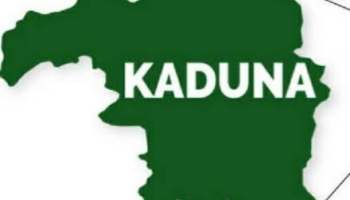The Kaduna State Emergency Management Agency (Kaduna SEMA) says it is mainstreaming nutrition in its emergency response to reduce malnutrition among vulnerable group during emergencies.
The Executive Secretary of SEMA, Mr Hassan Abubakar, said this in Kaduna at a two-day training of local government Nutrition Focal Persons (NFP) as Local Government Nutrition Emergency Mangers organised by the agency.
Abubakar explained that the training was designed to mainstream nutrition in feeding programmes during emergencies in order to meet the nutritional needs of women and children and other vulnerable groups during emergencies.
He said that the incidences and severity of public emergencies due to conflicts, flood, other human and natural disasters, and Internally Displaced Persons (IDPs) had been on the increase in the state.
Abubakar said the women, children, the aged and persons with disabilities were usually the most affected.
According to him, inadequate access to nutritious food has remained a major challenge to people affected by disasters or conflicts, in IDPs camps during emergency.
“This necessitated the need to train the NFPs in the 23 local government areas of the state as emergency managers on how to mainstream nutrition in emergency response.”
Kaduna SEMA’s Director, Finance and Administration, Mr Aminu Adamu, said that the objective of the workshop was for the nutrition emergency managers to work with the agency in addressing nutrition during emergencies.
He added that the training was designed to improve their skills on how to support SEMA and address the nutritional needs of vulnerable groups, particularly women and children under five years.
Mr Umar Bambale, the Project Manager, Kaduna State Emergency Nutrition Action Plan, commended SEMA for organising the training, describing it as “timely”, considering the frequency of emergencies in the state.
Similarly, Mr Sani Hassan of the Nutrition Society of Nigeria said that the training was very critical in ensuring that the emergency response takes care of the nutritional needs of vulnerable groups.
“Emergencies are inevitable, as such we must be prepared to ensure that our response does not leave anyone behind, particularly women and children.
“I am happy that the local government Nutrition Focal Persons are part of the training because they will play a critical role in ensuring successful implementation of emergency feeding programme,” Hassan said.
Also, Mrs Sah Kwasu, State Team Lead, Alive and Thrive (fhi 360) said that the training would improve the knowledge of participants to be able to reach out to all vulnerable groups with nutritional support.
Mr Adams George, Assistant State Nutrition Officer, said that the government with support from development partners was implementing preventive and curative interventions to address malnutrition in the state.
The Facilitator of the training, Mr Adole Inalegwu, a consultant, said that the goal was to reduce the incidence of malnutrition, during and after emergencies.
He said that the NFPs would be expected to carry out emergency assessment along with SEMA officials to determine the nutritional needs of vulnerable groups for the government and stakeholders to take appropriate action.

 Entertainment6 days ago
Entertainment6 days ago
 Health1 week ago
Health1 week ago
 Health4 days ago
Health4 days ago
 Football1 week ago
Football1 week ago
 Crime5 days ago
Crime5 days ago
 Football1 week ago
Football1 week ago
 Education6 days ago
Education6 days ago
 Crime1 week ago
Crime1 week ago

